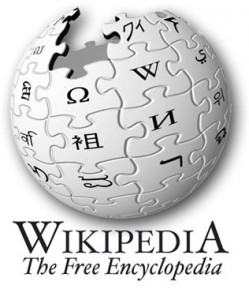 Update: Please see this follow-on post for what really happened in the end.
Update: Please see this follow-on post for what really happened in the end.
If you are involved in technology at all, you no doubt have heard about GamerGate. Normally at this point I would say that if you hadn’t heard about it, go read about it and come back.
But that would be foolish.
You would likely never come back. Perhaps it would be from disgust at how women have been treated by many male gamers. Perhaps it would be because you can’t believe you have just wasted hours of your life that you are never getting back. Or perhaps it is because you disappeared down the rat hole of controversy and won’t emerge until either hunger or your spouse drags you out. Whatever. You aren’t coming back. So don’t go before I explain why I am writing about this.
Wikipedia has a lot to offer. Sure, it has some gaping holes you could drive a truck through, just about any controversial subject can end up with a sketchy page as warring factions battle it out, and the lack of pages on women worthy of them is striking.
You see, it is well known that Wikipedia has a problem with female representation—both with the percentage of pages devoted to deserving women as well as the number of editors building the encyclopedia.
So perhaps it shouldn’t come as a surprise that Wikipedia has now is in the process of sanctioning the editors trying to keep battling over whether to keep a GamerGate Wikipedia page focused on what it is really all about—the misogynistic actions of a number of male gamers. But the shocking part to me is that it even extends beyond that one controversy into really dangerous muzzling territory. According to The Guardian, these women editors* have been banned from editing “any other article about ‘gender or sexuality, broadly construed.’ ” [Correction: the specific wording of the proposed ban is “2.1) Any editor subject to a topic-ban in this decision is indefinitely prohibited from making any edit about, and from editing any page relating to, (a) Gamergate, (b) any gender-related dispute or controversy, (c) people associated with (a) or (b), all broadly construed.”]
I find that astonishingly brutal. Especially for an endeavor that tries to pride itself on an egalitarian process.
Get your act together, Wikipedia.
* My bad. Editors were banned. They are not necessarily women. Or even feminists.


Hi Roy, you may be interested in my analysis of the structural problems with Wikipedia: http://newslines.org/blog/wikipedias-13-deadly-sins/